10 Best Foods That Give You Energy All Day & Foods To Avoid 2024

There’s nothing worse than feeling your energy drain in the middle of the day. When this happens, we tend to rely on quick-fix options like sweet coffee or an energy drink. But this is often followed by a sugar crash that leaves us just as tired as we did before.
The good news is you can use certain foods to help energize you and also sustain that energy longer. They may even help prevent that late afternoon fatigue in the first place.
So, which foods can I eat to give me energy? Let’s find out.
10 Healthy Foods To Boost Energy Levels
Nuts
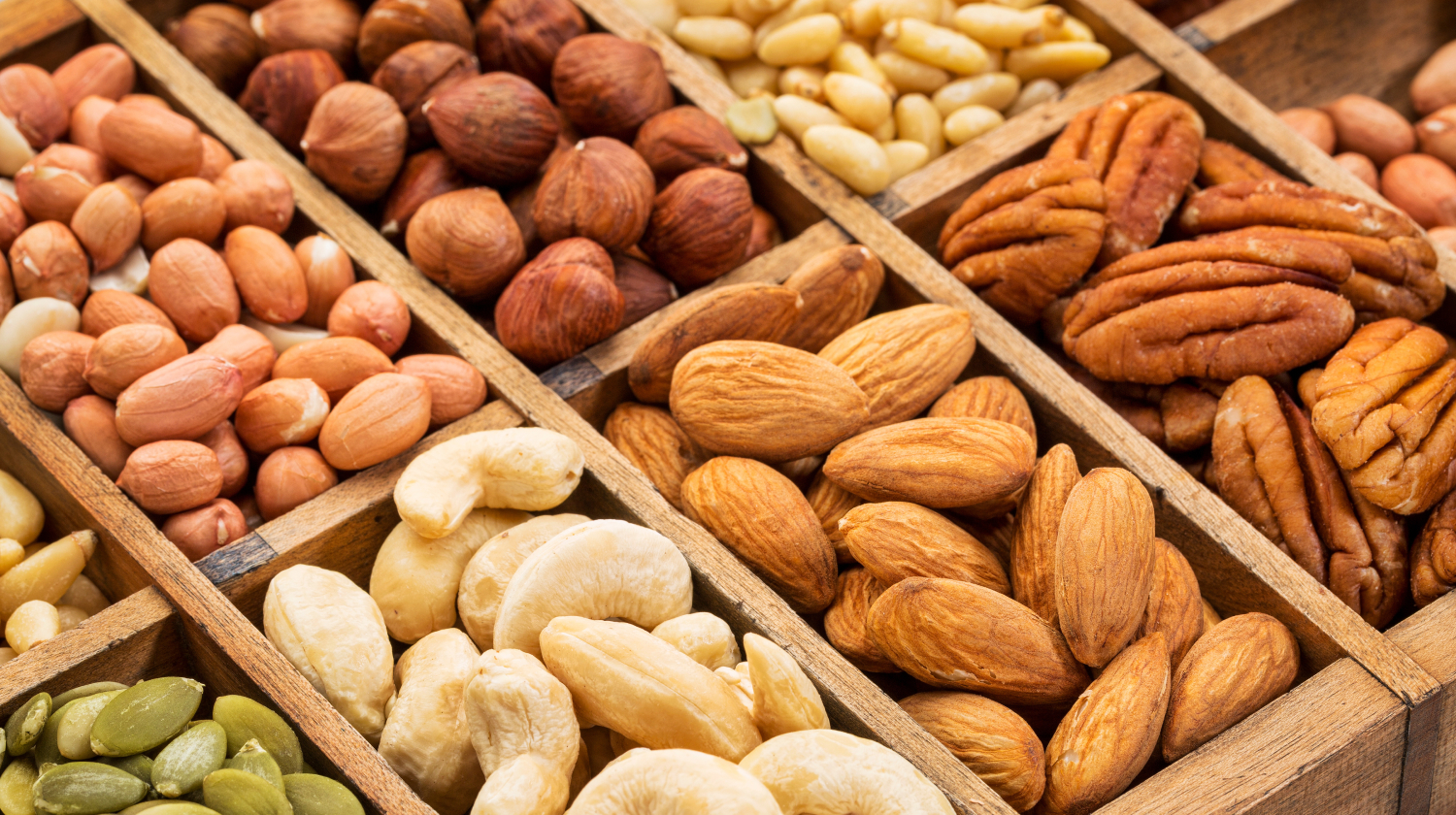
Nuts such as almonds and walnuts are a source of B vitamins like folate.[1] This nutrient can help prevent anemia, a common cause of fatigue.
Nuts can also be a useful food for pregnant women to eat for energy. Adequate folate intake is important for the growing fetus and may require a nutritional supplement.
Eating nuts as a snack can be useful to stave off hunger or when added at meal times.
Yogurt
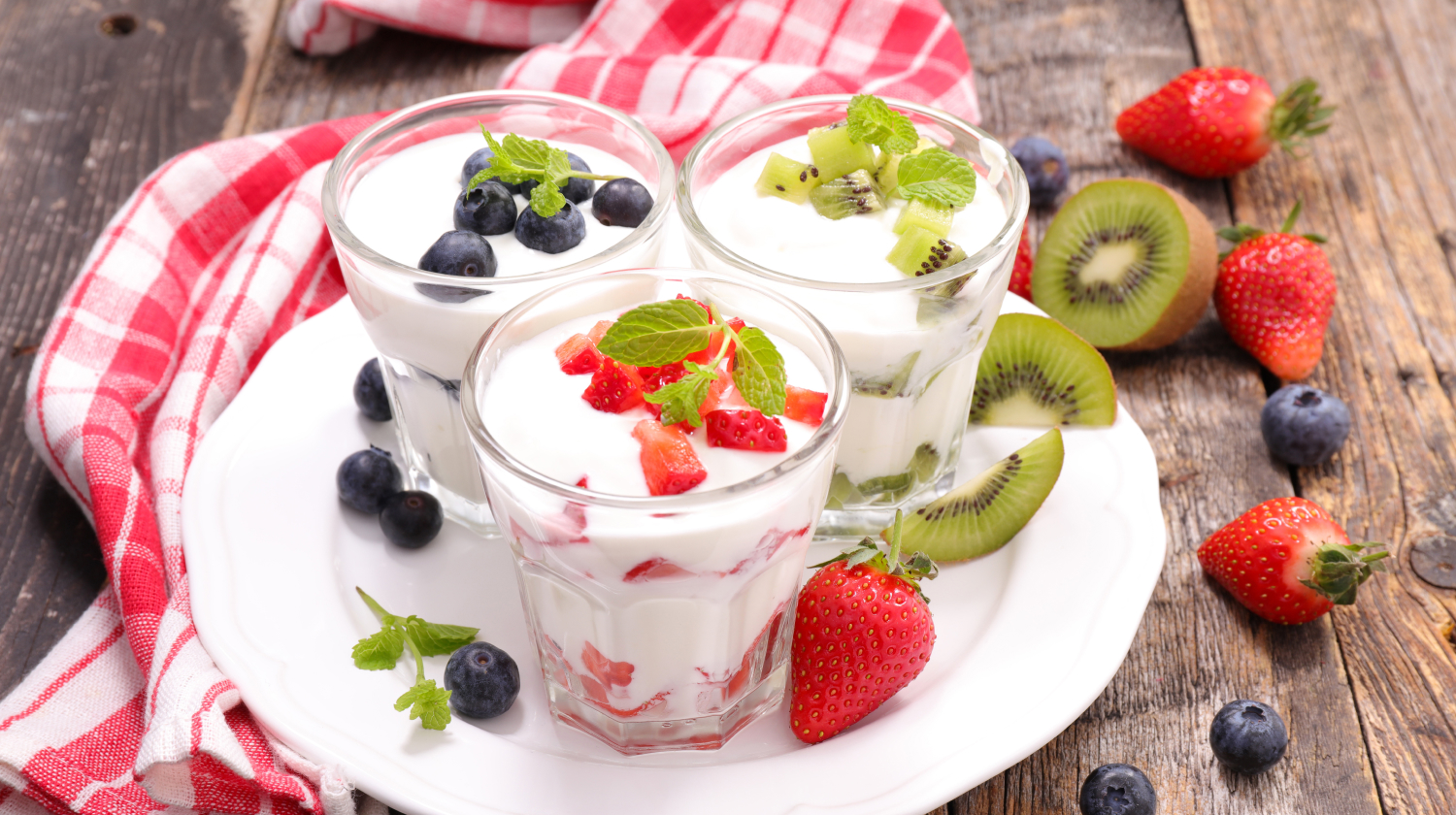
Dairy is a rich source of carbohydrates and protein. Greek yogurt has more protein per serving than its non-Greek counterparts and serves as a nutritious snack or as part of a meal.
Yogurt is also a good source of vitamin B12 and calcium. Vitamin B12[2] or cyanocobalamin has a role in energy and red blood cell production. While calcium is a mineral that participates in muscle contraction, and low levels of calcium may display in fatigue.
Fruit is a great addition to your yogurt since it’s also one of the best natural foods to give you energy, like in a smoothie.
Quinoa
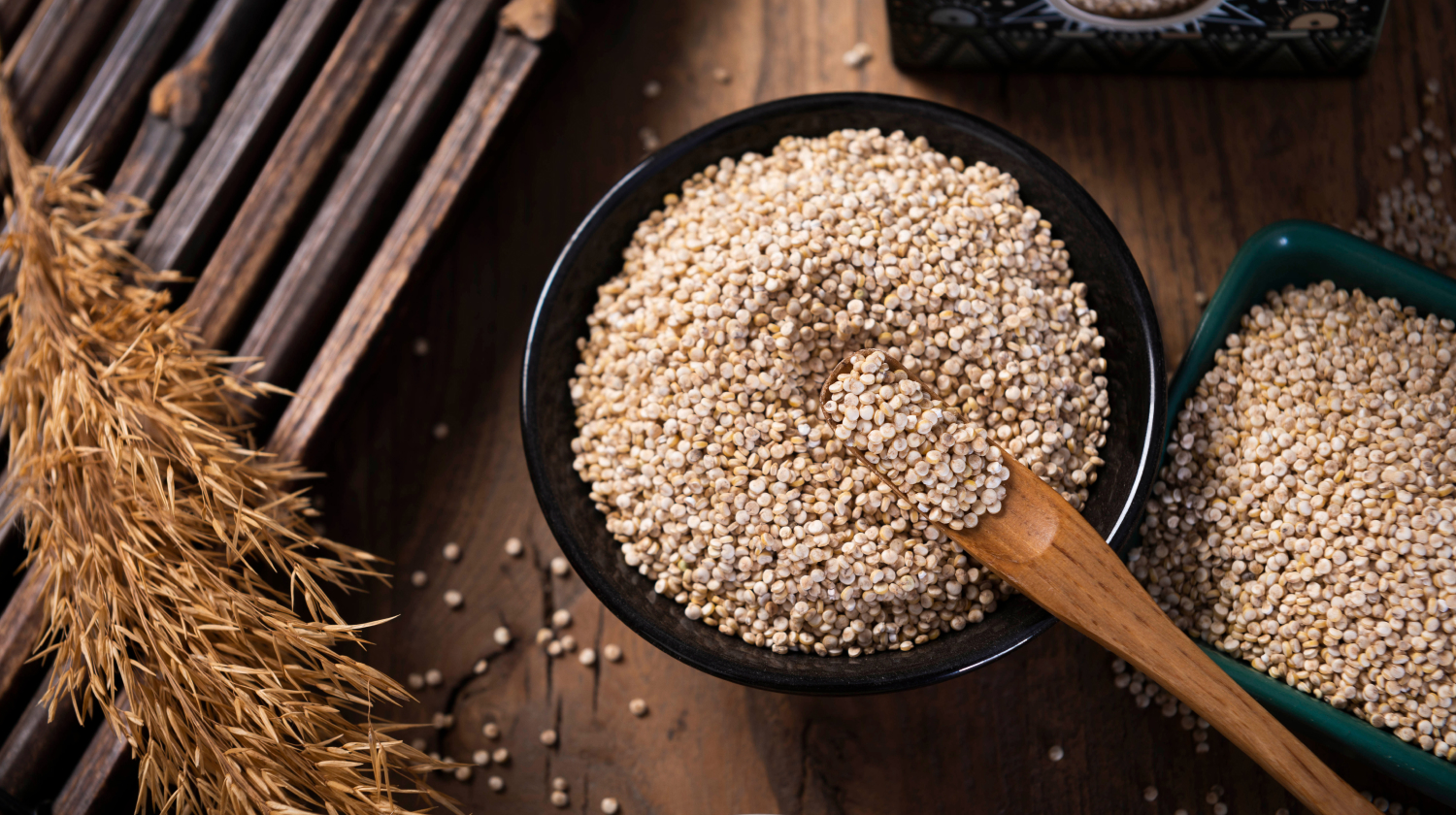
This whole grain can give you longer-lasting energy. Quinoa[3] offers carbohydrates as a source of glucose for energy, alongside protein and fiber. The insoluble fiber in quinoa slows down the digestion of glucose, resulting in fewer insulin spikes.
Quinoa is also a good dietary source of folate, iron,[4] and magnesium. These three nutrients not only participate in energy production but also aid in the production of red blood cells for oxygenation.
Oatmeal

Whole-grain oats are a good option to optimize your energy at the start of your day. Oatmeal is a good source of fiber and complex carbohydrates, the type of carbs[5] that are digested slowly and thus lead to more steady energy levels.
For this reason, they can also help maintain your blood sugar levels in a more stable range.
Top your oatmeal with some nuts or dried fruit for additional energy, and you may be able to skip your mid-morning snack.
Salmon

Including this fatty fish included in your meals will ensure stable energy levels. Salmon is a source of healthy fats like omega-3 fatty acids that can be protective of your heart and serve as an antioxidant.
Salmon[6] is also one of the best natural food sources of vitamin D.[7] Not getting enough vitamin D may affect the absorption of calcium in the intestines, which can result in low calcium levels.
Beetroot

Beets are a source of B vitamins, iron, and carbohydrates for energy. Beetroot contains nitrites, compounds that can dilate blood vessels and thus support healthy blood flow.
Nitrites[8] from beets also may help increase energy production at a cellular level, helping your body to run more effectively. In addition, this root vegetable is also used as a natural energy booster during exercise.
Pulses
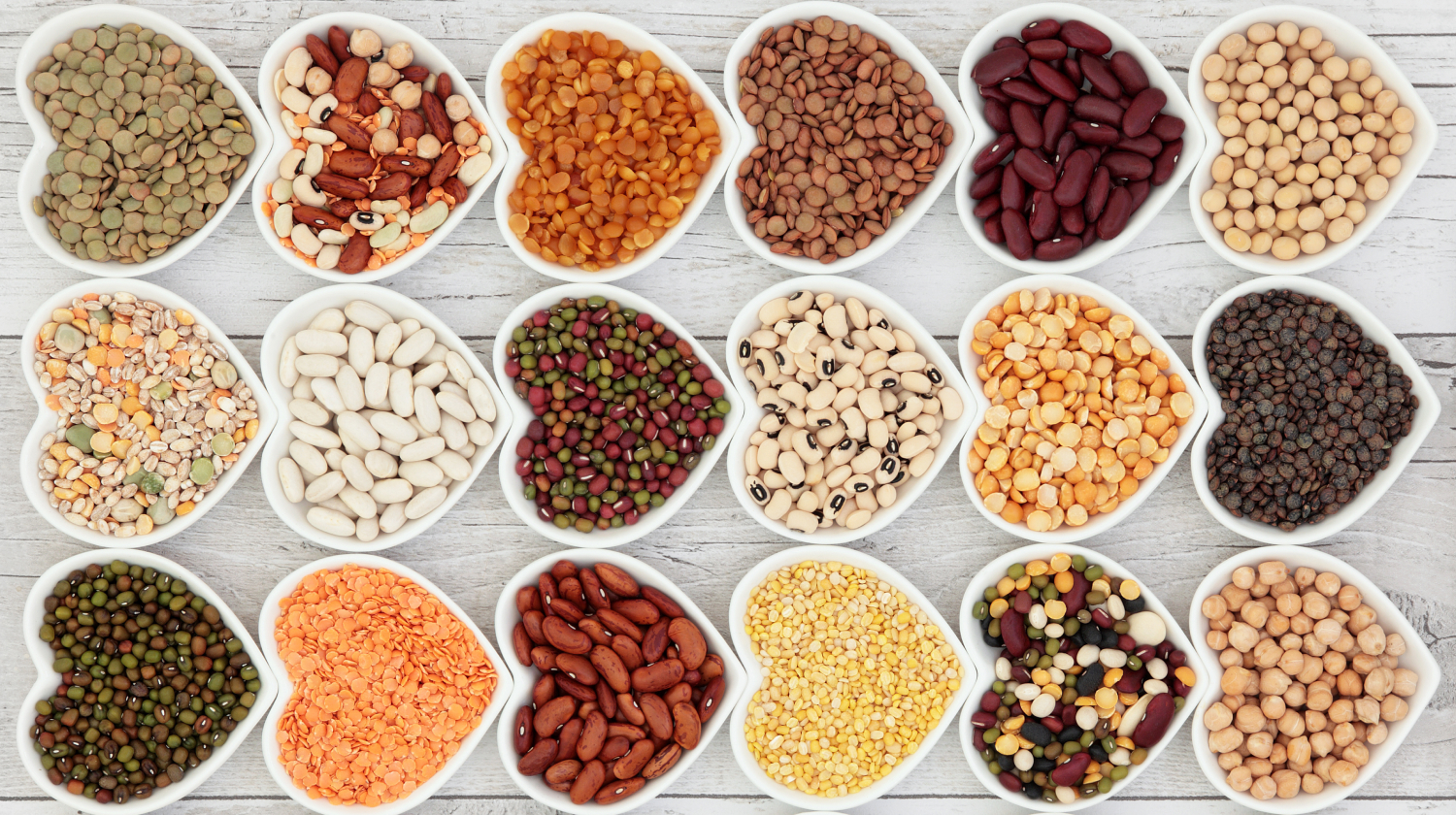
Pulses such as beans, lentils, and peas are a source of plant proteins. They are a source of carbohydrates, fiber, and protein. The fiber in pulses helps delay glucose absorption, supporting steady energy and keeping your blood sugar levels stable throughout the day.
Beans[9] are also a good source of the mineral magnesium, which is a critical part of our metabolism for energy production.
The great thing about pulses is they are versatile and filling.
Green Tea
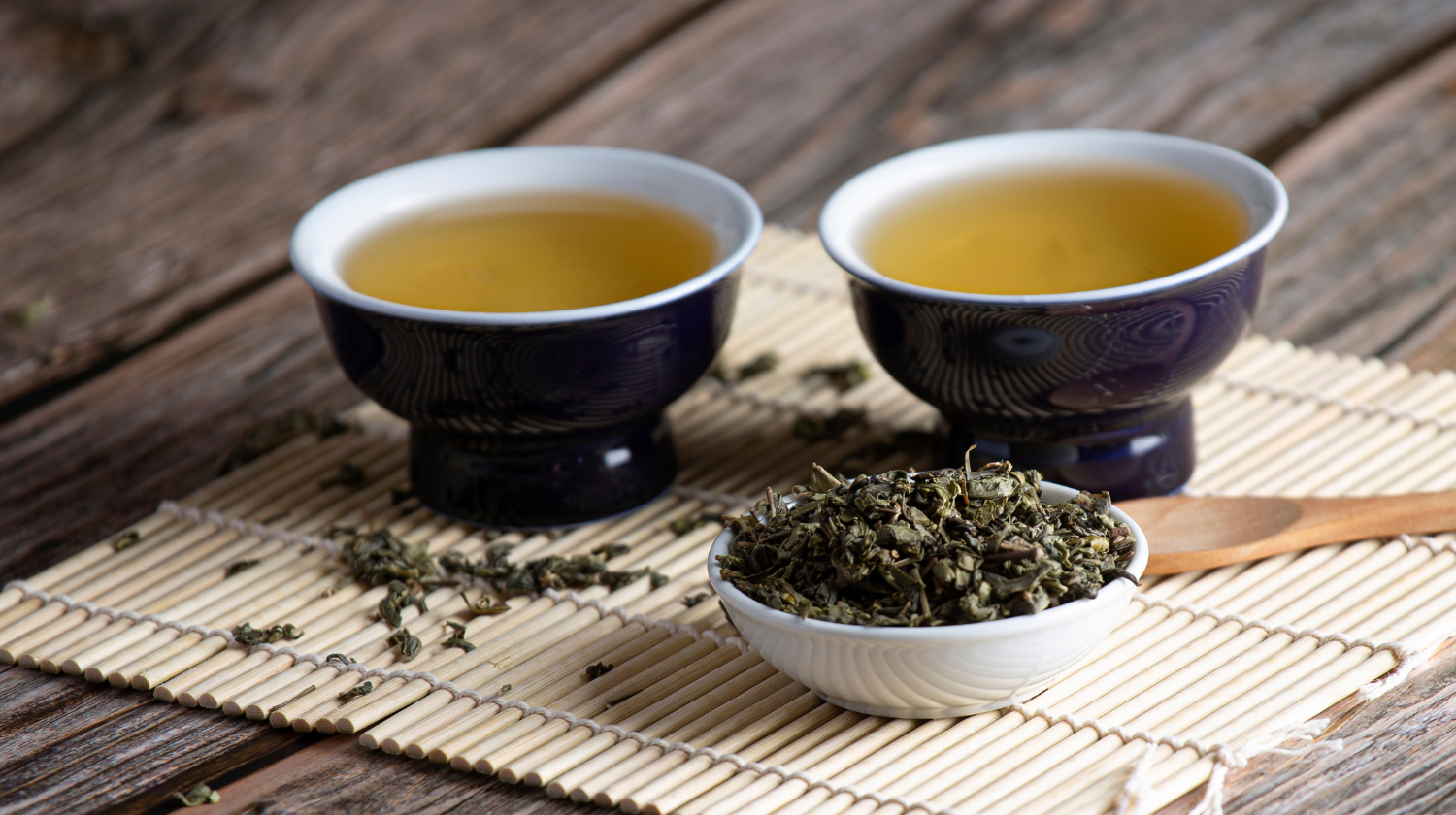
This tea is a source of caffeine with added health benefits. It can be an alternative to your 3 o’clock coffee for an energy boost or to increase your focus when you’re feeling tired.
Green tea[10] contains antioxidants, like Epigallocatechin-3-Gallate (EGCG) that help support healthy blood flow and provide anti-inflammatory power.
You can drink green tea on its own, or add a splash of milk for additional calories and energy.
Leafy Greens
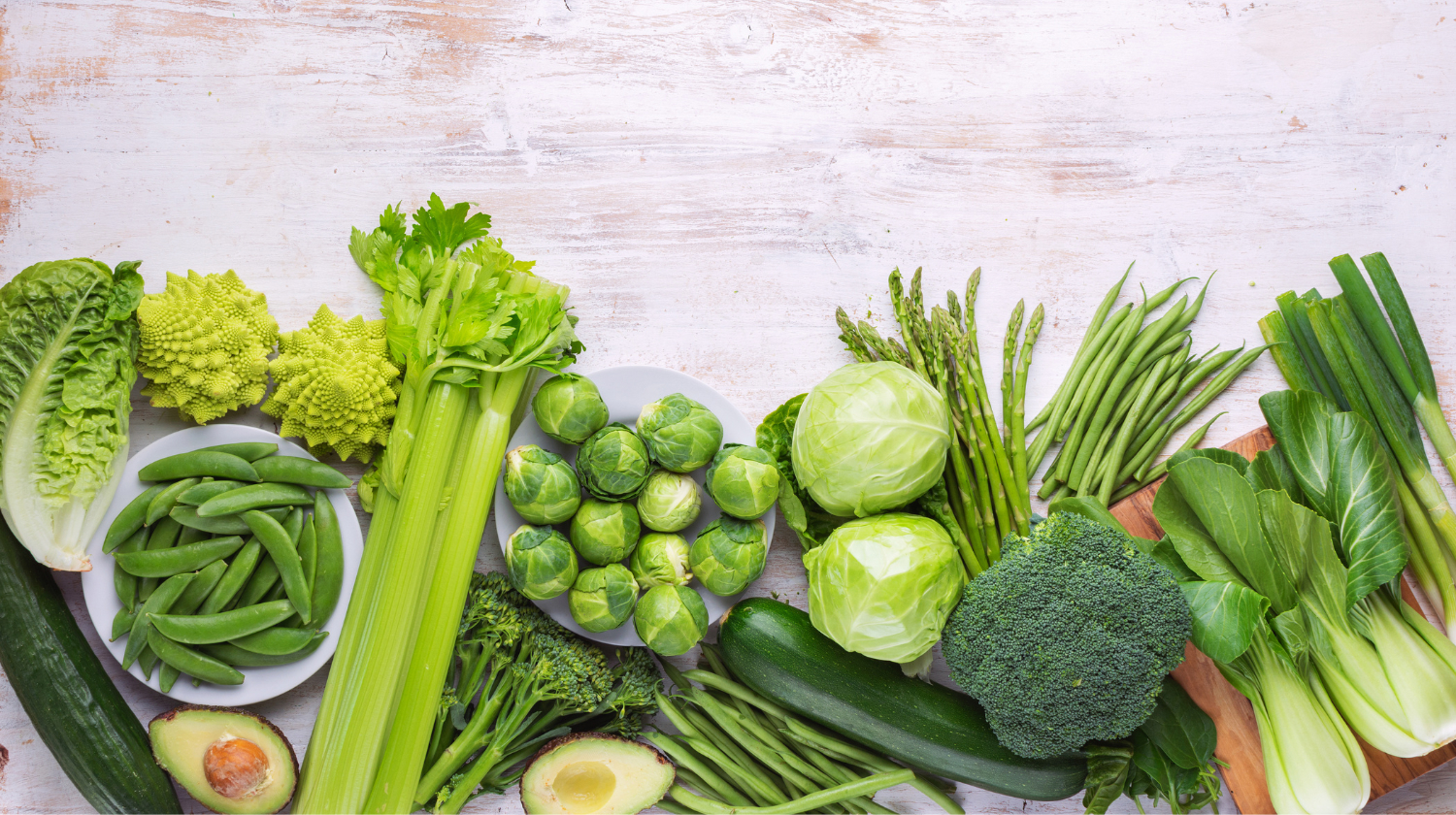
Greens like kale[11] are a source of vitamins B and C. Low levels of vitamin C may display initially as fatigue.[12] Over time, low vitamin C levels can lead to a weakened immune defense. Including leafy greens on most days not only provides essential vitamins and fiber but provides long-lasting energy.
Accompany your leafy greens with a starchy vegetable if you prefer, such as sweet potatoes with a leafy green salad.
Eggs
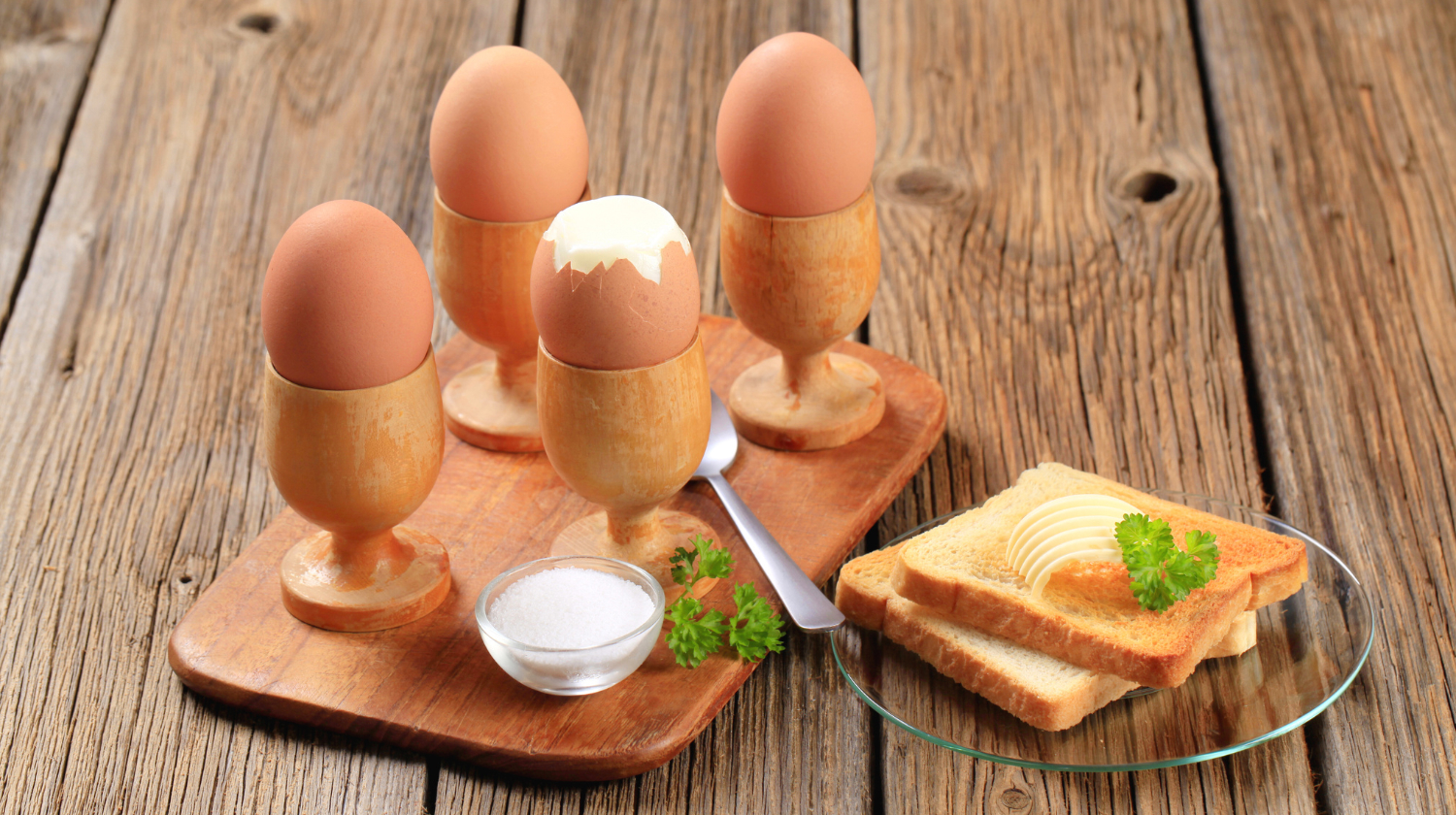
This breakfast staple is a quality protein source that keeps you full for longer. Eggs can be included in your meal alongside healthy starches like whole-grain toast.
The amino acids (protein-building block) that eggs contain can delay carbohydrate absorption, providing steady energy. Pairing eggs with your meal can extend your energy levels longer.
Foods To Avoid
Simple Carbohydrates
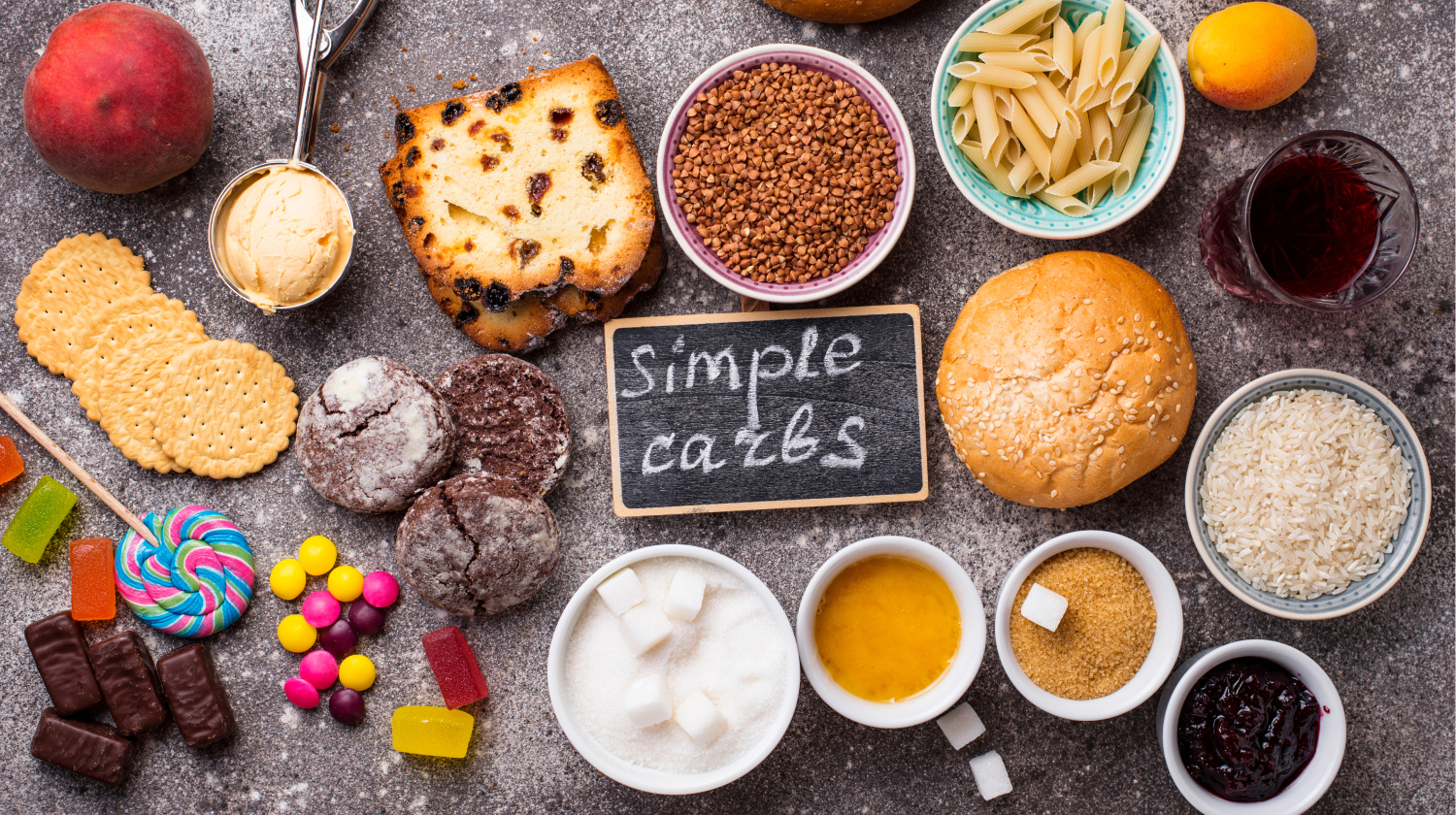
Carbohydrates[5] known as simple carbohydrates can be quickly used for energy. They only contain one or two sugars in their structures – and thus break down and spike blood sugar levels very quickly. But this effect is short-lived and may leave you searching for more food right after.
Examples of simple carbohydrate foods are sugar, fruit juice, candies, carbonated beverages, and honey. These foods should be consumed very sparingly to preserve your energy levels.
Energy Drinks
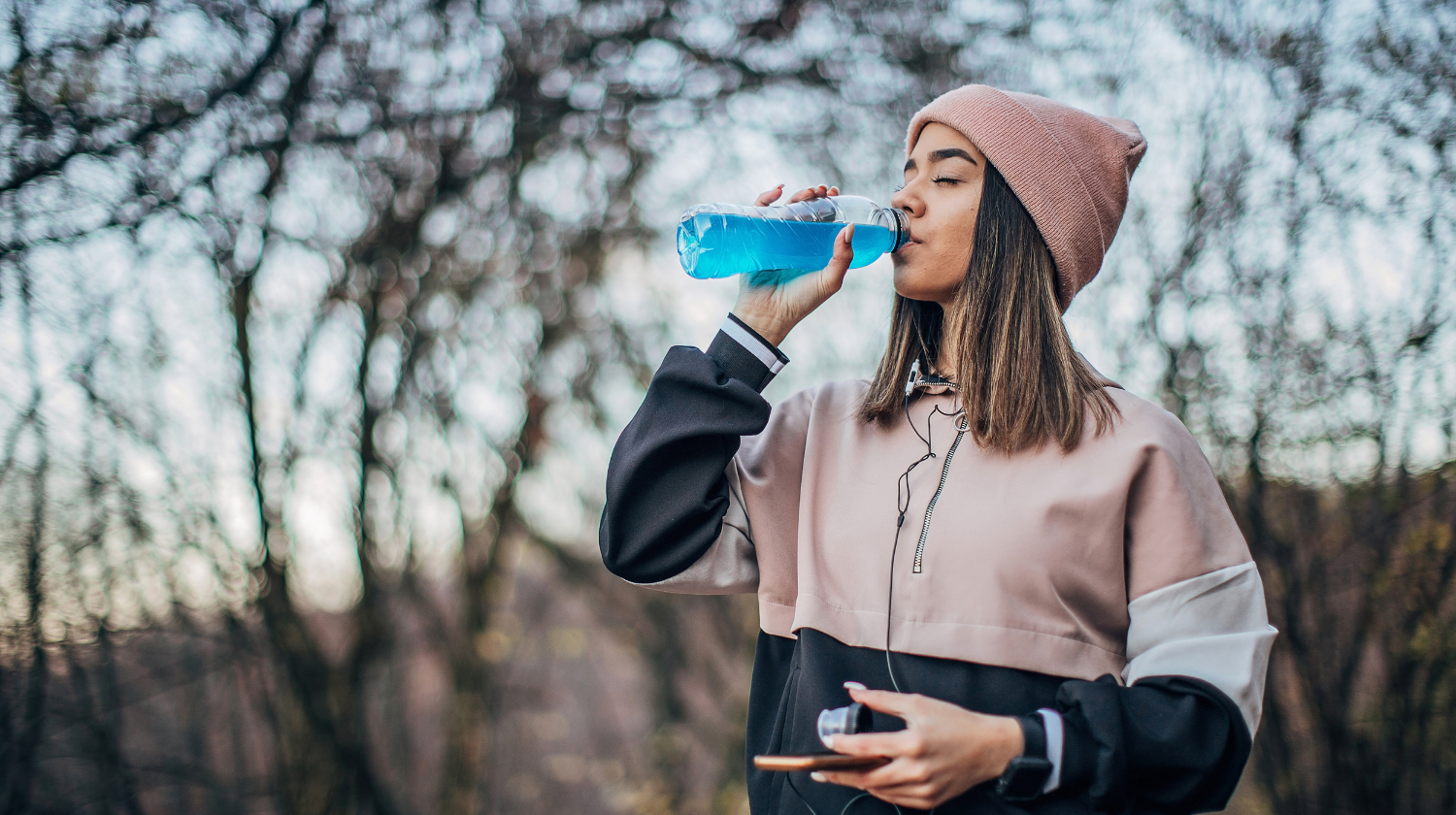
Energy drinks[13] are marketed as a product that can energize and increase mental alertness. These contain mainly caffeine, but can also have other stimulants like sugar, B vitamins, the amino acid taurine, and guarana fruit extract. It is suspected that the ingredients in energy drinks can cause[14] heart arrhythmia (changes in the rhythm of the heart) and increase blood pressure.
So while energy drinks may be tempting for a quick-acting energy source, this energy boost is short-lived and can come with side effects, which could be fatal.
Excess Sugar
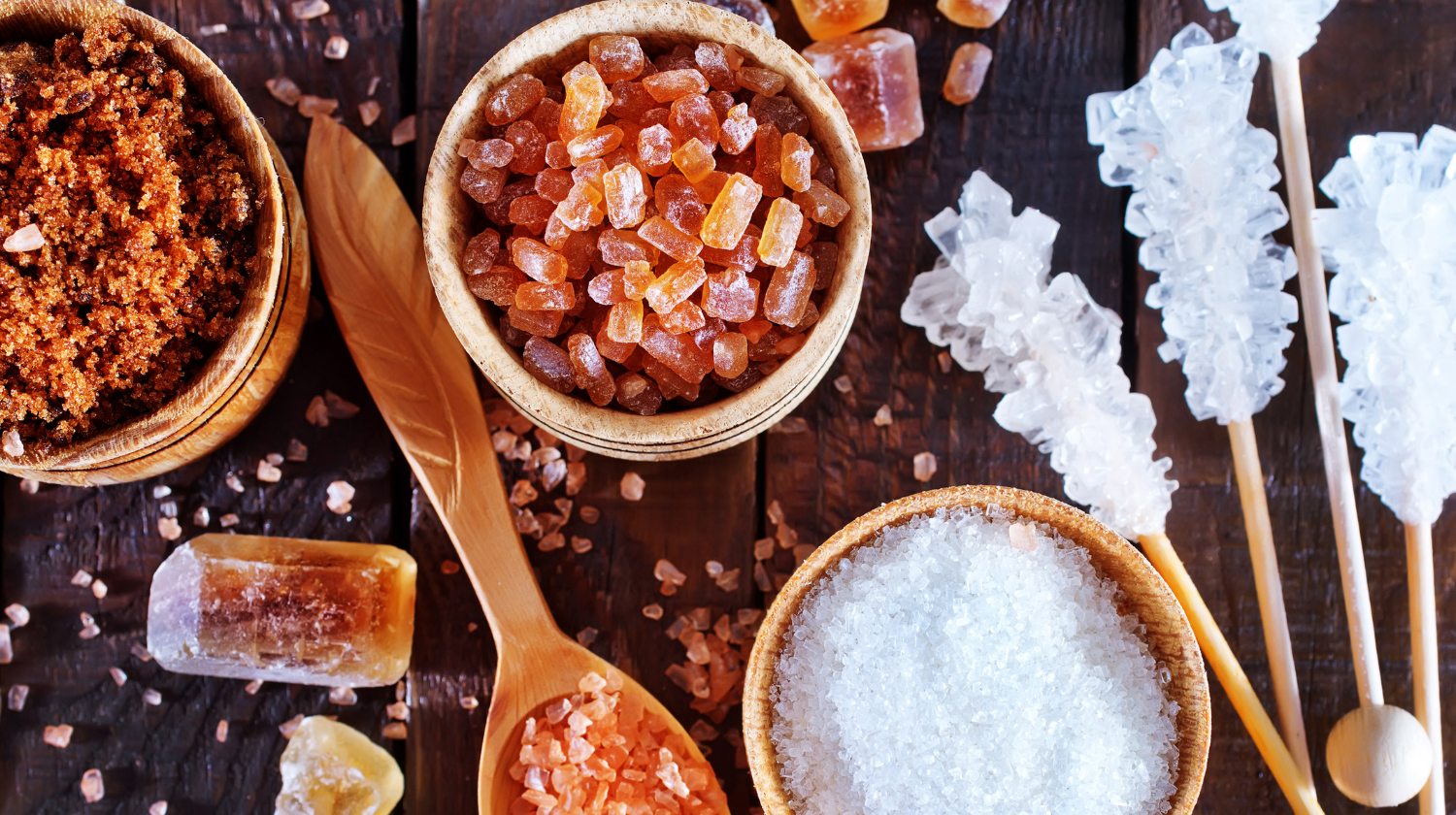
Besides the sugar content in energy drinks, consuming too much sugar in any form can be detrimental to your energy levels and your health.
The American Heart Association[15] recommends a more stringent standard for sugar intake – women should limit it to 6 teaspoons and men to 9 teaspoons. To make it easier to associate, a 16-ounce can of soda contains around 55 grams of sugar or 12 teaspoons.
You may benefit from avoiding simple sugars like pastries, sodas, or juices for energy. This can help you limit your daily sugar intake.
Too Much Coffee
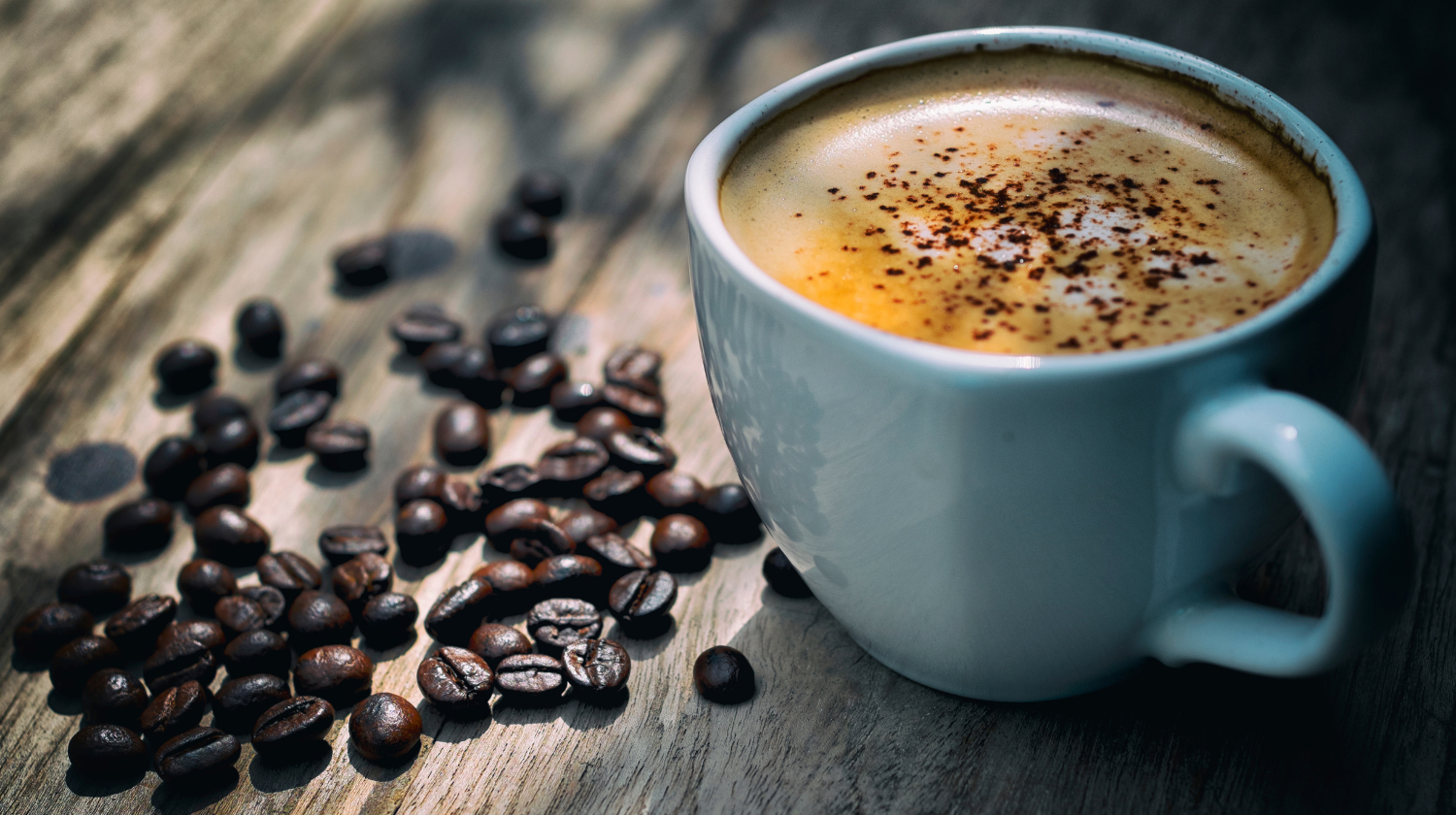
A nice cup of coffee[16] in the morning can be stimulating, make us more alert, improve our performance, and be comforting. However, the excess consumption of coffee can have adverse health effects.
According to the Food and Drug Administration, up to o 400 milligrams of caffeine[17] are considered safe. This is the equivalent of around four to five cups of coffee. More than this amount, some people may experience jitters, insomnia, anxiousness, and upset stomach, amongst other symptoms.
Tolerance to caffeine varies from person to person. Always speak to your doctor about the safest amount for you.
Tips For Increasing Your Energy Levels
Hydration
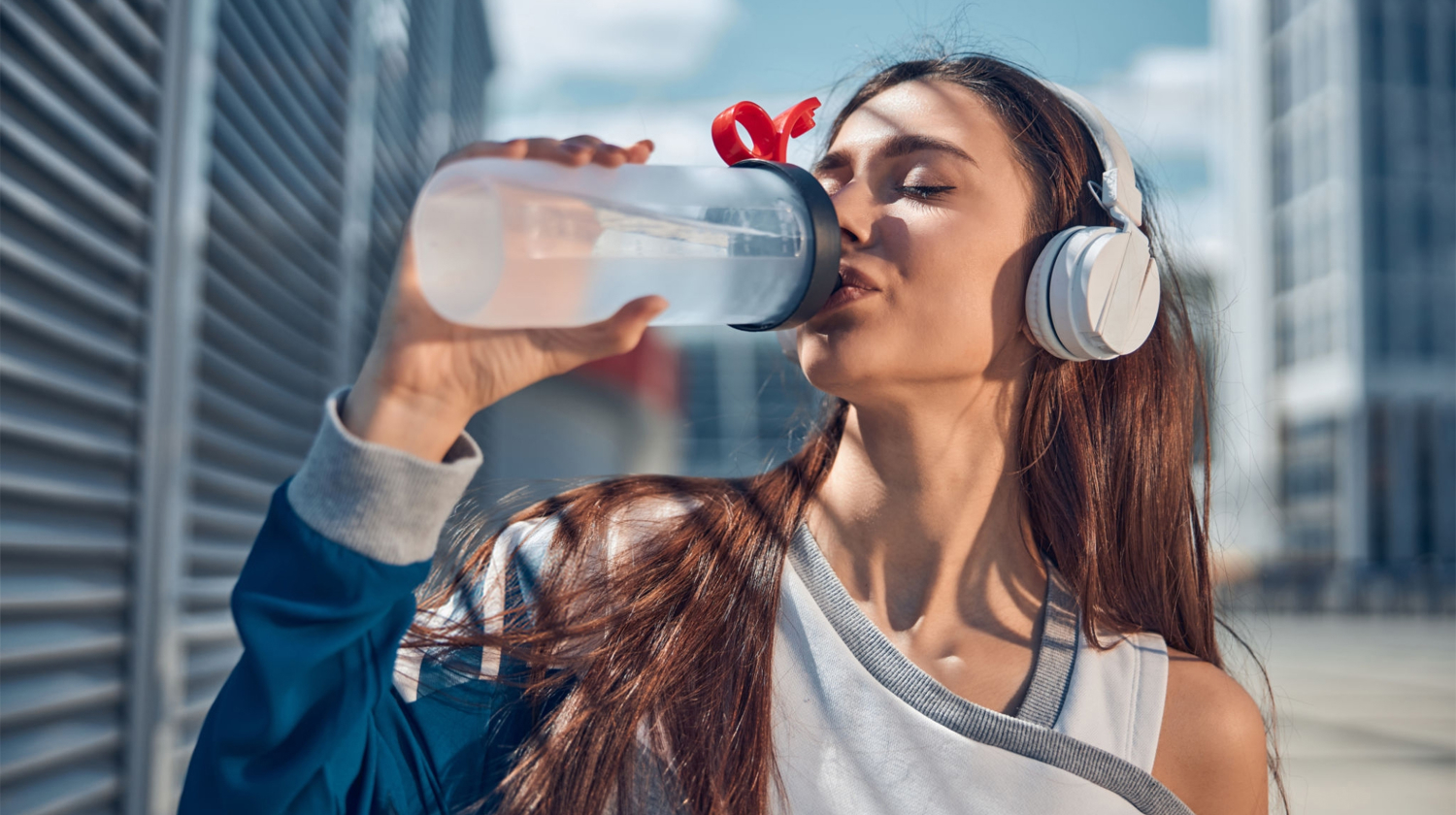
Drink plenty of fluids during the day. Not drinking enough hydrating[18] fluids can leave you feeling tired. When you start feeling thirsty, choose[19] water whenever possible to quench your thirst.
Food Pairings
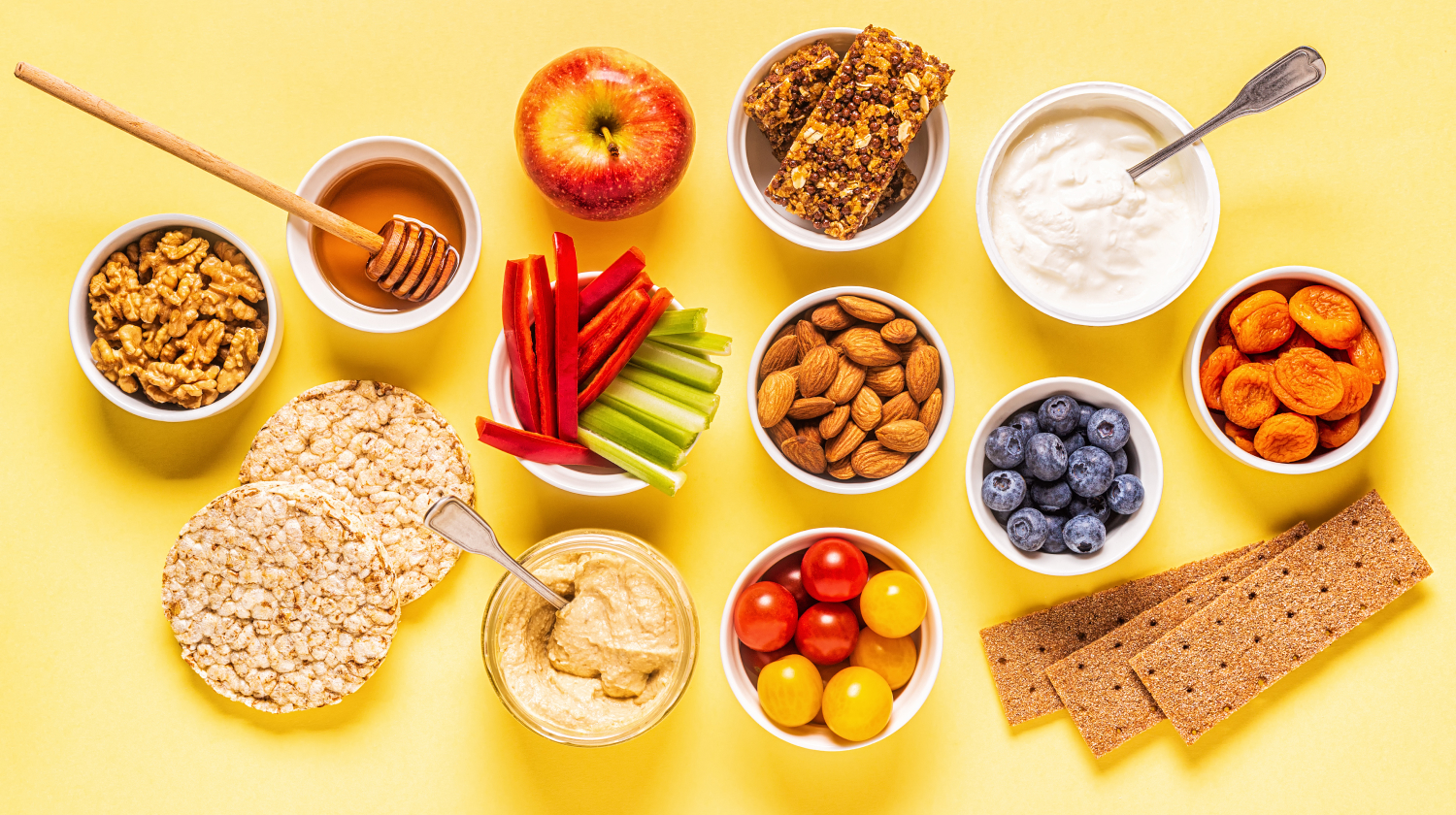
Pairing a source of carbohydrate (energy) with protein, fat, or fiber can help boost energy for longer periods. Combining foods and choosing high-fiber carbohydrates like whole grains can make sure you stay full for longer.
Try these snack pairing options:
- Whole wheat pita bread with hummus or peanut butter
- Brown rice with beans
- Oatmeal with peanut butter or walnuts
- Whole-grain toast with eggs or avocado
- Fruit with nuts or dairy
You can also plan your meals following the Myplate[20] method for a balanced meal that provides sustained energy. Following this can also help ensure you receive vitamins and minerals that produce energy in the body from energy-boosting foods.
Physical Activity

Short bursts of movement can re-energize you. In a study[21] with people reporting fatigue, it was found that low-intensity exercise was more effective in decreasing fatigue. So the next time you feel low on energy, consider going for a short walk.
For overall wellness, the Physical Activity Guidelines for Americans[22] advise performing 150 minutes of moderate-intensity physical activity, or 30 minutes daily. This could be a brisk walk, a bike ride, or a hike.
Sleep

Getting enough hours of quality sleep is paramount to optimizing your energy levels. It is recommended that adults sleep for 7-9 hours[23] per night. Sleeping for the recommended amount of time may also help prevent[24] the development of depression, obesity, diabetes, and cardiovascular disease.
The Bottom Line
Eating a balanced diet might just be the best way for you to enjoy steady energy all day. If your blood sugar is low or you need a quick energy source, simple carbohydrates like white bread or juice are your best bet.
However, in most cases, combining complex carbohydrate food sources like whole grains and starchy veggies with protein, fats, and/or high-fiber foods will be best to make sure to keep your energy levels stable.
Leading a healthy lifestyle with adequate sleep, daily physical activity, and a balanced diet will give provide you with the best energy possible every day.
+ 24 sources
Health Canal avoids using tertiary references. We have strict sourcing guidelines and rely on peer-reviewed studies, academic researches from medical associations and institutions. To ensure the accuracy of articles in Health Canal, you can read more about the editorial process here
- Nih.gov. (2016). Office of Dietary Supplements – Folate. [online] Available at: https://ods.od.nih.gov/factsheets/Folate-Consumer/
- Nih.gov. (2021). Office of Dietary Supplements – Vitamin B12. [online] Available at: https://ods.od.nih.gov/factsheets/VitaminB12-Consumer/
- Usda.gov. (2023). FoodData Central. [online] Available at: https://fdc.nal.usda.gov/fdc-app.html#/food-details/168917/nutrients
- Nih.gov. (2022). Office of Dietary Supplements – Iron. [online] Available at: https://ods.od.nih.gov/factsheets/Iron-Consumer/
- Holesh JE;Aslam S;Martin A (2022). Physiology, Carbohydrates. [online] Available at: https://pubmed.ncbi.nlm.nih.gov/29083823/
- Usda.gov. (2023). FoodData Central. [online] Available at: https://fdc.nal.usda.gov/fdc-app.html#/food-details/175167/nutrients
- Nih.gov. (2022). Office of Dietary Supplements – Vitamin D. [online] Available at: https://ods.od.nih.gov/factsheets/VitaminD-Consumer/
- Larsen, F.J., Schiffer, T.A., Borniquel, S., Sahlin, K., Ekblom, B., Lundberg, J.O. and Weitzberg, E. (2011). Dietary Inorganic Nitrate Improves Mitochondrial Efficiency in Humans. Cell Metabolism, [online] 13(2), pp.149–159. doi:10.1016/j.cmet.2011.01.004.
- Usda.gov. (2023). FoodData Central. [online] Available at: https://fdc.nal.usda.gov/fdc-app.html#/food-details/175242/nutrients
- NCCIH. (2020). Green Tea. [online] Available at: https://www.nccih.nih.gov/health/green-tea
- Usda.gov. (2023). FoodData Central. [online] Available at: https://fdc.nal.usda.gov/fdc-app.html#/food-details/323505/nutrients
- Nih.gov. (2021). Office of Dietary Supplements – Vitamin C. [online] Available at: https://ods.od.nih.gov/factsheets/VitaminC-Consumer/
- NCCIH. (2018). Energy Drinks. [online] Available at: https://www.nccih.nih.gov/health/energy-drinks
- Shah, S.A., Szeto, A.H., Farewell, R., Shek, A., Fan, D., Quach, K.N., Bhattacharyya, M., Elmiari, J., Chan, W., O’Dell, K., Nguyen, N., McGaughey, T.J., Nasir, J.M. and Kaul, S. (2019). Impact of High Volume Energy Drink Consumption on Electrocardiographic and Blood Pressure Parameters: A Randomized Trial. Journal of the American Heart Association, [online] 8(11). doi:10.1161/jaha.118.011318.
- www.heart.org. (2019). How much sugar is too much? [online] Available at: https://www.heart.org/en/healthy-living/healthy-eating/eat-smart/sugar/how-much-sugar-is-too-much
- Cappelletti, S., Daria, P., Sani, G. and Aromatario, M. (2015). Caffeine: Cognitive and Physical Performance Enhancer or Psychoactive Drug? Current Neuropharmacology, [online] 13(1), pp.71–88. doi:10.2174/1570159×13666141210215655.
- fda.gov. Spilling beans how much caffeine too much. [online] Available at: https://www.fda.gov/consumers/consumer-updates/spilling-beans-how-much-caffeine-too-muchhttps://www.fda.gov/consumers/consumer-updates/spilling-beans-how-much-caffeine-too-much.
- Medlineplus.gov. (2019). Dehydration. [online] Available at: https://medlineplus.gov/dehydration.html
- Eatright.org. (2022). How Much Water Do You Need? [online] Available at: https://www.eatright.org/health/essential-nutrients/water/how-much-water-do-you-need
- USDA (2020). What is MyPlate? | MyPlate. [online] www.myplate.gov. Available at: https://www.myplate.gov/eat-healthy/what-is-myplate.
- Puetz, T.W., Flowers, S.S. and O’Connor, P.J. (2008). A Randomized Controlled Trial of the Effect of Aerobic Exercise Training on Feelings of Energy and Fatigue in Sedentary Young Adults with Persistent Fatigue. Psychotherapy and Psychosomatics, [online] 77(3), pp.167–174. doi:10.1159/000116610.
- CDC (2022). Physical Activity Recommendations for Different Age Groups. [online] Centers for Disease Control and Prevention. Available at: https://www.cdc.gov/physicalactivity/basics/age-chart.html
- CDC (2022). How Much Sleep Do I Need? [online] Centers for Disease Control and Prevention. Available at: https://www.cdc.gov/sleep/about_sleep/how_much_sleep.html
- CDC (2022). Sleep and Chronic Disease. [online] Centers for Disease Control and Prevention. Available at: https://www.cdc.gov/sleep/about_sleep/chronic_disease.html



